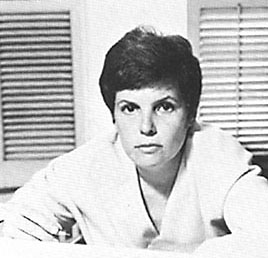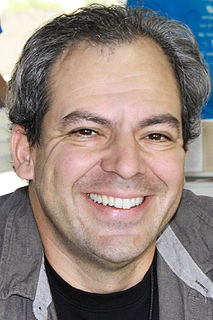Top 800 Notebook Memorable Quotes & Sayings - Page 14
Explore popular Notebook Memorable quotes.
Last updated on April 19, 2025.
Do you know how much money you would save if you changed your light bulb to compact florescent light bubs? How much would you save if you decreased your temperature of your house in the winter by one degree, or increase it by one degree? We just don't know these numbers, but I think displays could make it a memorable change in terms of attention, and also help us translate it in terms of concrete ways on what you can get.
So, if I'm no cheerleader of sports, why write a chapter about it? Sports do have some positive impact on society. They solve problems, such as how to get inner-city kids to spend $175 on shoes. They serve as a backdrop for some of our most memorable commercials. And they remain the one and only relevant application of math. Not only that, but we have sports to thank for most of the last century's advances in manliness. The system starts in school, where gym class separates the men from the boys. Then those men are taught to be winners, or at least, losers that hate themselves.
The more Adams thought about the future of his country, the more convinced he became that it rested on education. Before any great things are accomplished, he wrote to a correspondent, a memorable change must be made in the system of education and knowledge must become so general as to raise the lower ranks of society nearer to the higher. The education of a nation instead of being confined to a few schools and universities for the instruction of the few, must become the national care and expense for the formation of the many.
On this side of the Atlantic, the arrival of a new Woody Allen movie is always greeted with tremors of bliss by filmgoers past the age of 60, with mild curiosity by those in their 50s, with trepidation by those in their 40s, with fear and loathing by those in their 30s, and with complete indifference by anyone younger. An icon to baby boomers, who will never concede that when something is over, it is really over (Clapton, McCartney, Santana, the 1960s), Allen has not made a truly memorable film since Bullets On Broadway back in 1994.
From our sorrow we might seek out the sweetness and the good that is often associated with and peculiar to our challenge. We can seek out those memorable moments that are frequently hidden by the pain and agony. We can find peace in extending ourselves to others, using our own experiences to provide hope and comfort. And we can always remember with great solemnity and gratitude Him who suffered most to make it all right for us. And by so doing we can be strengthened to bear our burdens in peace. And then, the 'works of God' might be manifest.
Amity Gaige has written a flawless book. It does not contain a single false note. Playful and inventive, SCHRODER movingly depicts the ways we confound our own hearts--how even with the best intentions, we fail to love those closest to us as well as we wish we could. Eric Schroder should take his place among the most charismatic and memorable characters in contemporary fiction, and Amity Gaige her place among the most talented and impressive writers working today.
I have a lot of special memories with my parents but my toughest one is, I had, as a teenager, a pretty insatiable appetite for beer. The first time I got drunk my father found me throwing up in the bathroom. I was 15, maybe 16, and the disappointment in his voice, I can hear it to this day, and the sorrow that that brought to him. He just felt like a failure as a father, and Id give anything to take that day back because that was so hard on him. In time, my life got better, and his did too, but that was really memorable, one of those memories Id like to forget.
She didn't care anymore... and she got no pleasure from the work she did, but she did it. Everything bored her. She found that when she didn't have a notebook it was hard for her to think. The thoughts came slowly, as though they had to squeeze through a tiny door to get to her, whereas when she wrote, they flowed out faster than she could put them down. She sat very stupidly with a blank mind until finall 'I feel different' came slowly to her mind. Yes, she thought, after a long pause. And then, after more time, 'Mean, I feel mean.
It's hard no to work, so I find a way to put myself back to work. And I think it's important, in between projects, for me to sit down with who I've just become and allow her to continue to evolve and find a home inside me before I go and become somebody else. But I think I also need to learn to relax and not prepare too much, just enjoy life. I notice that my characters go out to dinner and have fun and take these great trips, but I spend so much time on their lives, I don't have much of a personal life of my own. I have to sort of remember to fill out that little notebook on me.
Actually, in a lot of circumstances, the Kalashnikov is poorly used by people who are not especially good shots, or who are outright bad shots. In these cases, the rifle's weaknesses emerge. As far as accuracy goes, the Kalashnikov is stubbornly mediocre, and the ease with which it can be fired on automatic means that many people fire it on automatic when they would be better served firing a single, aimed shot. Getting shot at by a sniper is a much different experience, and far more frightening. But either experience is, to borrow your word, memorable. These memories are pretty much all bad.
Durable, memorable poetry is usually alert to complexity. A really good poem gives you a reason to read it 20 times, because the language in a good poem is doing a lot of work emotionally and a lot of work intellectually. That means durable poetry can help us think about complexity, can help us resist easy answers and help us step back. And it can help us sometimes calm down, and sometimes it can help us stay upset.
Paul Simon once said that a songwriter's supreme challenge was being complex and simple at the same time-writing songs with lasting depth that are also simple enough to be memorable. Jimmy Van Heusen was a master at this kind of song. His music was complex, with deeply rich chord changes any jazzman can embrace, but also possessed catchy, crystalline melodies of exceeding sing-ability. His songs were meant to be sung, not just listened to, and they were sung by the best, with Frank Sinatra and Bing Crosby at the top of that list.
At the heart of good education are those gifted, hardworking, and memorable teachers whose inspiration kindles fires that never quite go out, whose remembered encouragement is sometimes the only hard ground we stand upon, and whose very selves are the stuff of the best lessons they ever teach us. Most of us, no matter how long ago it's been, can name our kindergarten teacher. Our first music teacher. Our junior high algebra teacher. Good teachers never die.
[David Lean's] images stay with me forever. But what makes them memorable isn't necessarily their beauty. That's just good photography. It's the emotion behind those images that's meant the most to me over the years. It's the way David Lean can put feeling on film. The way he shows a whole landscape of the spirit. For me, that's the real geography of David Lean country. And that's why, in a David Lean movie, there's no such thing as an empty landscape.
Nothing is more memorable than a smell. One scent can be unexpected, momentary and fleeting, yet conjure up a childhood summer beside a lake in the mountains; another, a moonlit beach; a third, a family dinner of pot roast and sweet potatoes during a myrtle-mad August in a Midwestern town. Smells detonate softly in our memory like poignant land mines hidden under the weedy mass of years. Hit a tripwire of smell and memories explode all at once. A complex vision leaps out of the undergrowth.
Other people, so I have read, treasure memorable moments in their lives: the time one climbed the Parthenon at sunrise, the summer night one met a lonely girl in Central Park and achieved with her a sweet and natural relationship, as they say in books. I too once met a girl in Central Park, but it is not much to remember. What I remember is the time John Wayne killed three men with a carbine as he was falling to the dusty street in Stagecoach, and the time the kitten found Orson Welles in the doorway in The Third Man.
When compiling his great dictionary, the young Noah Webster travels to the Himalayas, where he climbs to the cave of the world's wises man. 'O, great sage,' he says, 'tell me the meaning of life.' The sage sits Noah at his feet and, with great solemnity, commences to unfold the meaning of life. When finished, he places a hand on the young man's shoulder and says, 'Do you have any other questions, my son?' Noah flips a page in his notebook and says, 'You wouldn't know the meaning of lift, would you?'
Look at Andrew Roe's The Miracle Girl from one angle and you'll see an incisive and insightful critique of America at the millennium and today, investigating where we put our faith and why. The greatest of Roe's achievements in this captivating debut is a memorable feat of intense empathy. Roe inhabits characters who are desperate to believe and reveals to us their needs and wounds and hopes, and he does so with kindness, generosity, and wisdom. This is a novel about what it means to be human, to seek connection and hope and maybe even transcendence in the world around us.
In that memorable year, 1822: Oersted, a Danish physicist, held in his hands a piece of copper wire, joined by its extremities to the two poles of a Volta pile. On his table was a magnetized needle on its pivot, and he suddenly saw (by chance you will say, but chance only favours the mind which is prepared) the needle move and take up a position quite different from the one assigned to it by terrestrial magnetism. A wire carrying an electric current deviates a magnetized needle from its position. That, gentlemen, was the birth of the modern telegraph.
The soul of wit may become the very body of untruth. However elegant and memorable, brevity can never, in the nature of things, do justice to all the facts of a complex situations. On such a theme one can be brief only by omission and simplification. Omission and simplification help us to understand - but help is, in many cases, to understand the wrong thing; for our comprehension may be only of the abbreviator's neatly formulated notions, not of the vast, ramifying reality from which these notions have been so arbitrarily abstracted.



















